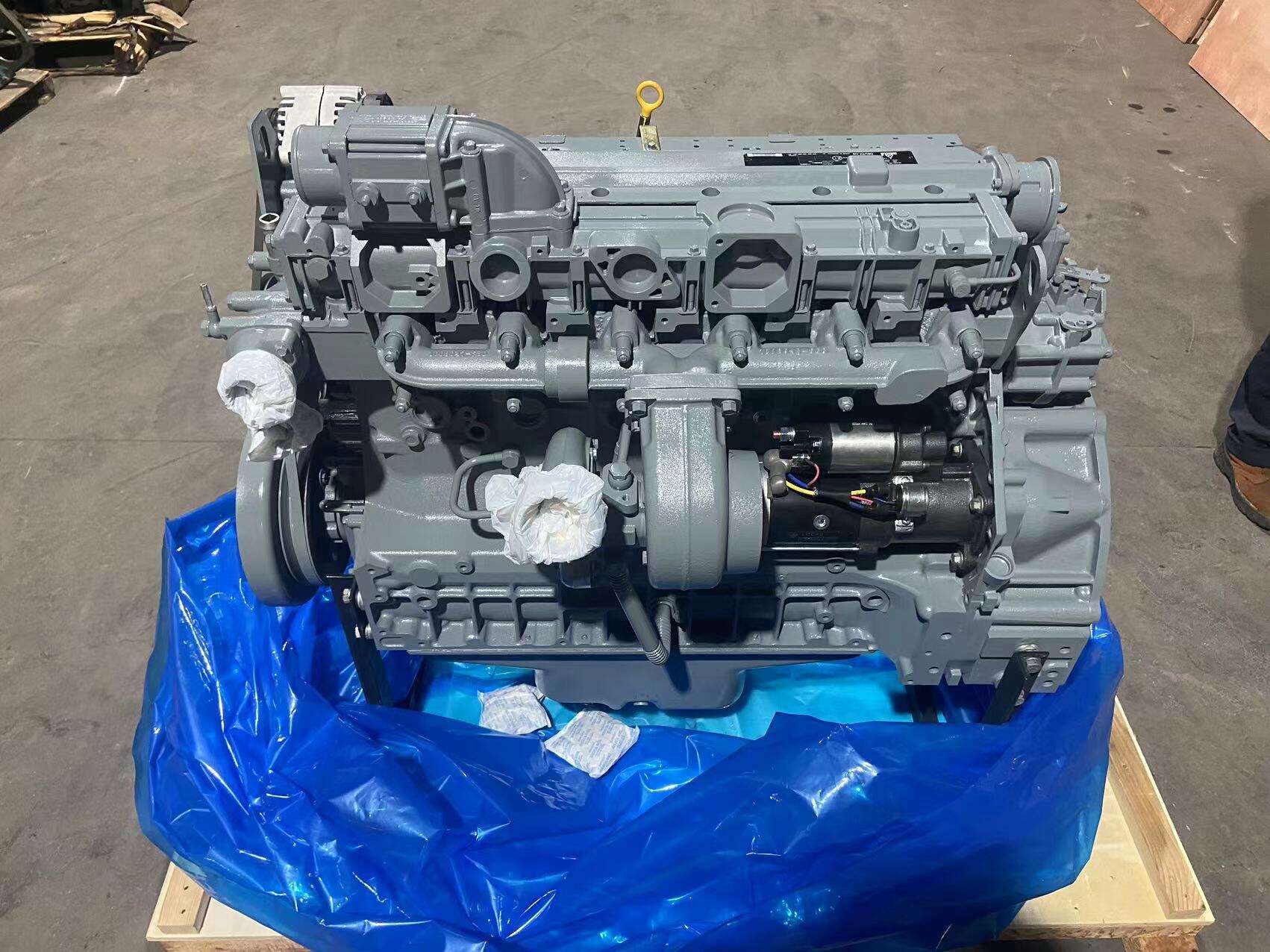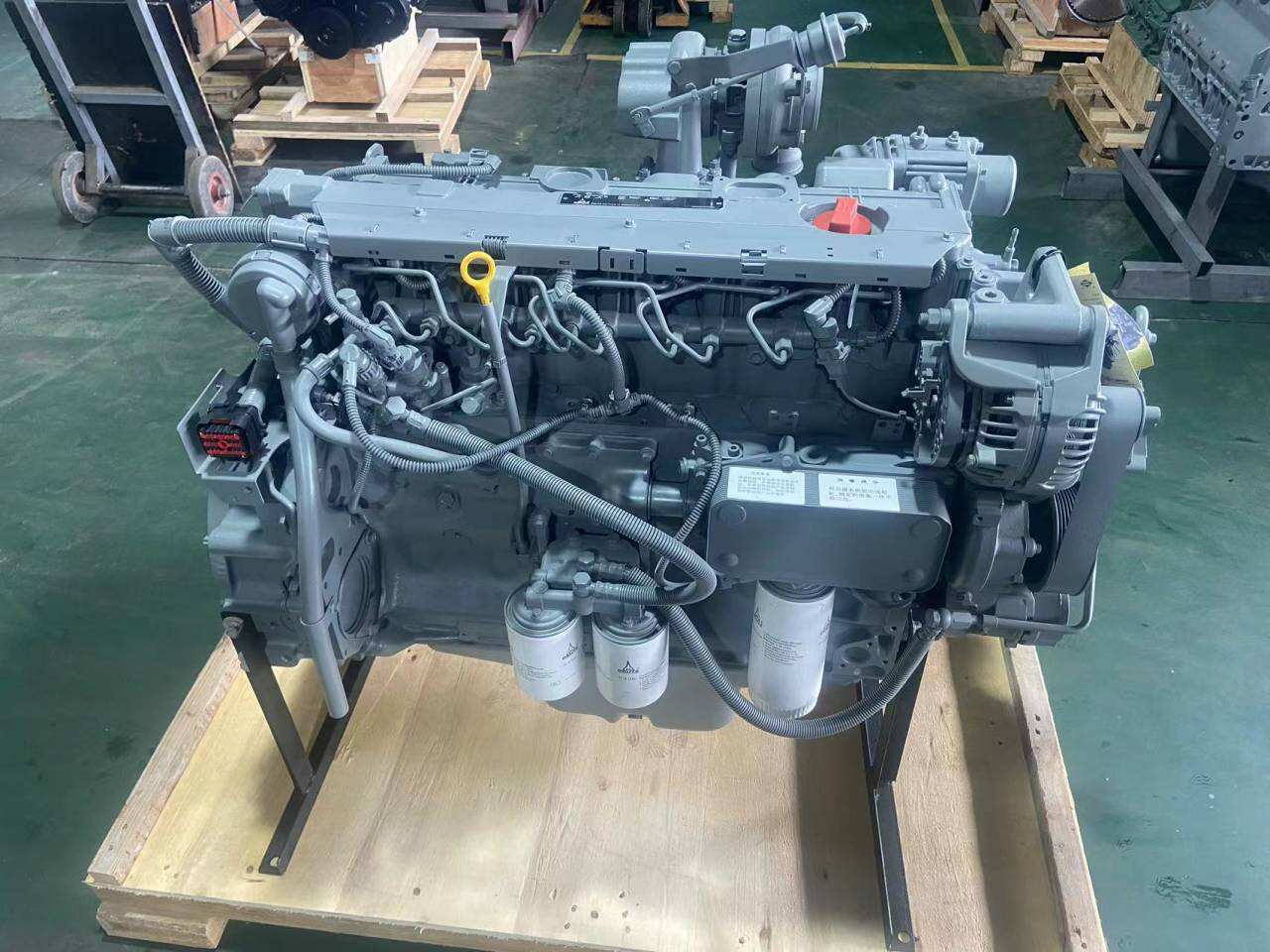Onlarla illərdir ki, Deutz mühərrikləri kənd təsərrüfatı maşınları, tikinti maşınları, qazma işləri və hətta ehtiyat elektrik generatorları kimi müxtəlif sektordan çətin mühitlərdə işləyib. Bu mühərriklərlə hər gün işləyən insanlar bilirlər ki, onlara etibar etmək olar, çünki onlar nasaz olmadan işləyərək davamlı olurlar. Bu mühərriki fərqləndirən nədir? Gəlin, onun necə işlədiyinə, bu qətəli şəraitdə onu necə işə saldığını və bu maşınların təmir arasındakı müddəti uzatmaq üçün real dünya məsləhətlərini nəzərdən keçirək.
Deutz Mühərrik Texnologiyasının Əsasları
Deutz Mühəndisliyinin İrsləri
1864-cü ildə yaradılmış Deutz AG, əslində həmişəlik mövcud olmuş klassik mühərrik istehsalçılarından biridir. Artıq 150 ildən çoxdur ki, onlar dizel mühərrikləri sahəsində sərhədləri irəlilətməkdə öz adlarını yaxşı qazanmışdır. Onların məhsul çeşidi həm hava ilə soyutma, həm də maye ilə soyutma tipli modelləri əhatə edir. Bu o deməkdir ki, mühərriklər həm tikinti maşınlarından kənd təsərrüfatı maşınlarına qədər müxtəlif sahələrdə işləmək üçün kifayət qədər möhkəmdir. Fermerlər onları traktorlarda sevir, müqavilə sahibləri isə xüsusilə etibarlılıq vacib olan ağır maşınlar üçün onları üstün tuturlar.
Hava ilə soyutulan və Maye ilə soyutulan variantlar
Deutz mühərriklərini bir çox rəqiblərindən fərqləndirən şey, həqiqətən həm havayla soyutma, həm də su ilə soyutma versiyaları təqdim etməsidir. Havayla soyutma modelləri tozlu və ya çatmaq çətin olan yerlərdə olduqca yaxşı işləyir, çünki ənənəvi radiatör sistemləri orada qədər uzun ömürlü olmur. Su ilə soyutma mühərrikləri isə fərqli bir hekayə danışır. Bu mühərriklər uzun müddət tam güc üzərində işlədikdə maşınların istiliyi daha yaxşı idarə edə bilir. Bu variantlar arasından seçim edərkən, əsasən avadanlığın gündəlik olaraq hansı şərtlərlə qarşılaşacağına və tətbiqin uzun müddət ərzində hansı növ güc tələblərinə cavab verməli olduğuna bağlıdır.
Modular və Ölçüklü Mimarlıq
Deutz mühərrikləri modulyarlıq prinsipi əsasında hazırlanmışdır. Modellərin çoxu seriyalar üzrə eyni komponentlərdən istifadə edir, bu da onların texniki xidmət və təmirini daha asan edir. Bu uyğunluq variantlar arasında dayanma vaxtını azaldır və ehtiyat hissələrinin inventarlaşdırılmasını sadələşdirir.
Əsas Komponentlər və İş Performansına Təsir Edən Amillər
Yanacaq Qurutma Sistemləri
Deutz mühərrikləri yanacaq səmərəliliyini artırmaq və emissiyaları azaltmaq üçün inkişaf etmiş birbaşa qurutma sistemlərinə malikdir. Onların ümumi rayalı sistemləri isə xüsusilə dəqiq yanacaq verilməsi ilə seçilir ki, bu da güc çıxışı artırır və eyni zamanda ətraf mühit qaydalarına uyğunluğu təmin edir.
Elektron İdarəetmə Blokları (ECU)
Müasir Deutz mühərrikləri iş parametrlərini real vaxtda idarə edən elektron idarəetmə blokları ilə təchiz edilmişdir. ECU-lar yanacaq axınını tənzimləyir, temperaturu izləyir və nasazlıq kodları ilə əlaqə saxlayır, bu da müxtəlif yükləmə şəraitində daha yaxşı diaqnostika və daha hamar işləmə imkanı yaradır.
Turboşarjinq və Soyutma Sonrası
Güc sıxlığını artırmaq üçün çox Deutz mühərrikləri turboşarjerlər və hava soyutma qurğuları ilə təchiz olunub. Bu sistemlər daxil olan havanı sıxır və yanmadan əvvəl soyudur, daha tam yanacaq yanmasını, gücün artmasını və yanacaq səmərəliliyinin yaxşılaşdırılmasını təmin edir.
İstismar Səmərəliliyi və Praktik Nəzərdən Keçirilmələr
Soyuq Başlatma İmkanı
Deutz mühərrikləri soyuq hava şəraitində etibarlı şəkildə işləmək üçün nəzərdə tutulub. Qabaqcadan qızdırma sistemləri və qızdırma buğumları işə salınmaya kömək edir, eyni zamanda aşağı temperaturda yağlar işə salındıqdan sonra dövriyyəni təmin edir. Bu, xüsusilə kənar təbiətdə və ya qış mövsümündə intensiv istifadə olunan sənayelər üçün onları xüsusilə əlverişli edir.
Şöngül və rəddəciliyi idarə etmək
Səs izolyasiya və vibrasiya söndürmə texnologiyaları bir çox Deutz mühərrik modellərinə daxil edilmişdir. Bu sistemlər operatorun rahatlığına, şasseyə təsirin azalmasına və xüsusilə şəhər tikintisi və kənd təsərrüfatı istifadəsi üçün yerli səs-küy qaydalarına uyğunluğa töhfə verir.
Biotoplaqla Uyğunluq
Deutz mühərrikləri alternativ yanacaqlar nəzərə alınmaqla işlənilib. Bir çox modellər performansı təsirləndirmədən biodizel qarışıqları ilə işləmək üçün sertifikatlaşdırılıb. Bu, davamlı tətbiq tələblərinin artırılması və ətraf mühit təsirinin azaldılması ilə uyğundur.
İstismar və çeviklik idarəetməsi
Təyin edilmiş təmir tədbirləri
Deutz mühərrikindən maksimum səmərəlilik əldə etmək üçün müntəzəm texniki xidmət göstərməyə əməl etmək çox vacibdir. Məsələn, yağın müntəzəm dəyişdirilməsi, hava filtrlərinin lazımi hallarda əvəz edilməsi və soyutma mayesinin səviyyəsinə nəzarət edilməsi kiçik problemi gələcəkdə böyük problemlərə çevrilə bilməz. Əksər Deutz tələbləri isə xidmət cədvəlini avtomobilin işlədiyi mil sayına əsaslamadan, saat sayına əsasən təyin etməyi tövsiyə edir. Bu yanaşma bir yerdə sabit qalan və ya gündən-günə ağır işlədilən maşınlar üçün daha səmərəlidir ki, bu da sənaye avadanlıqlarında çox yayılmışdır.
Orijinal Ehtiyat Hissələrinin İstifadəsi
Mühərrikin bütövlüyünü saxlamaq üçün yalnız Deutz-un orijinal istehsal tələblərinə uyğun gələn komponentlərdən istifadə etmək vacibdir. Orijinal hissələr həm ölçüsünə uyğun gəlməsini, həm də material uyğunluğunu və uzunömürlülüyü təmin edərək mühərrikin ümumi performansı üçün kritik əhəmiyyət daşıyır.
Proqram Təminatı və Diaqnostika Alətləri
Deutz mühərrik ECU-suna birbaşa qoşulan müstəqil diaqnostika alətləri təqdim edir. Bu alətlər texniklərin yeniləmələr etməsinə, nasazlıqları aradan qaldırmasına və məhsuldarlıq parametrlərini tənzimləməsinə imkan verir. Diaqnostik proqram təminatının düzgün istifadəsi müasir Deutz mühərriklərinin təmir edilməsi və səmərəliliyini artırır.

Sənaye sektorlarında tətbiq
Kənd təsərrüfatı maşınları
Deutz mühərrikləri ilə işləyən traktorlar, kombaynlar və çiləyicilər крутящий momentin təhvil verilməsi və yanacaq səmərəliliyi ilə tanınır. Bu sektorda mühərriklərdən uzun iş saatları, tozlu şərait və müxtəlif relyeflərlə başa çıxmaq gözlənilir — bu çətinliklərlə Deutz mühərrikləri səmərəli şəkildə məşğul olur.
İnşaat Texniki
Ekskavatorlar, yükləyicilər və mobil qaldırmalar Deutz mühərriklərinin möhkəm konstruksiyasından və kompakt dizaynından yararlanır. Ağırlıq altında və ağır hava şəraitində sabit performans göstərmə qabiliyyəti onları sənaye sektoru içərisində ən çox istifadə edilən mühərriklərdən birinə çevirir.
Dəniz və Elektrik enerjisi istehsalı
Deutz Mühərrikləri həmçinin dəniz mühərriki və avan qəza təchizatı kimi istifadə olunur. Onların etibarlılığı və idarəetmə sistemlərinə inteqrasiya asanlığı kritik tətbiqlər üçün əlverişli edir, burada iş vaxtı vacibdir.
Yeni Texnologiyalar və Davamlılıq
Hibrid və Elektrikli Sistemlərin Birləşdirilməsi
Sənaye təmiz enerjiyə keçdikcə, Deutz təkliflərinə elektrik mühərrikləri və hibrid texnologiyaların daxil edilməsinə başlayıb. Bu sistemlər emissiyaları azaldarkən yüksək məhsuldarlığı saxlayır və şirkətlərə daha yaşıl alternativlərə sərin keçid etməyə imkan verir.
Emissiya Nəzarəti İnkişafı
Qlobal emissiya standartlarına cavab verə bilmək üçün Deutz mühərrikləri istilik gazı recirkulyasiya sistemi (EGR), dizel hissəcik filtrləri (DPF) və seçici katalitik reduksiya (SCR) texnologiyaları ilə təchiz olunub. Bu sistemlər NOx və hissəcik emissiyalarını əhəmiyyətli dərəcədə azaldır və mühərrik gücünü saxlayır.
Uzaqdan Monitorinq və Telematika
Rəqəmsal platformalar vasitəsi ilə istifadəçilər mühərrik vəziyyətini izləyə, xəbərdarlıqlar ala və təmir işlərini real vaxt rejimində planlaşdıra bilərlər. Bu texnologiyalar planlaşdırılmayan dayanma vaxtını azaldır, əməliyyatların şəffaflığını artırır və məlumatlara əsaslanan qərarlar qəbul edilməsinə imkan verir.
Uzun Muddətli Sahib Oluş Nəzarəti
Ümumi İstifadə Maliyyəsi
Deutz mühərrikləri aşağı dəstəkli brendlərlə müqayisədə başlanğıcda daha çox investisiya tələb edə bilər, lakin onların səmərəliliyi, uzunömürlülüyü və azalmış təmir xərcləri zamanla ümumi mülkiyyət dəyərini aşağı salır.
Geri satılma qiyməti
Deutz kimi nüfuzlu istehsalçıların mühərrikləri isbat edilmiş nəticələrinə və beynəlxalq tanınmasına görə daha yüksək satım dəyərini saxlayır. Bu, avtoparkları yeniləmək və ya istifadə olunmuş avadanlıqları satmaq niyyətində olan bizneslər üçün daha ağıllı investisiya imkanı yaradır.
Diler dəstəyi və Beynəlxalq əhatə dairəsi
Deutz şirkəti xidmət mərkəzləri və səlahiyyətli dilerlərin beynəlxalq şəbəkəsini saxlayır. Bu geniş dəstək sistemi istənilən yer və sənayedə ehtiyat hissələrinin mövcudluğunu və peşəkar xidmət təminatını təmin edir.
SSS
Deutz mühərriklərini qətliam mühitlər üçün uyğun edən nədir?
Deutz mühərrikləri hava soyutma, effektiv sıxlama və davamlı materiallardan ibarət möhkəm dizayn xüsusiyyətlərinə malikdir və onları ekstremal temperaturlarda, tozlu ərazilərdə və uzaq yerlərdə istifadə üçün ideal edir.
Deutz mühərrikinə texniki xidmət nə qədər tez-tez göstərilməlidir?
Xidmət i̇nterallar model və tətbiqdən asılı olaraq dəyişir, lakin ümumi təlimat 250-dən 500-ə qədər iş saatı üçün tətbiq edilir. Həmişə istehsalçının texniki xidmət cədvəlinə əməl edin və orijinal ehtiyat hissələrindən istifadə edin.
Deutz mühərrikləri biodizel ilə uyğunlaşa bilərmi?
Bəli, bir çox Deutz mühərrik modelləri yanacağın müvafiq standartlara uyğun olması şərtilə biodizel qarışıqları ilə işləməyə sertifikatlandırılmışdır. Konkret yanacaq uyğunluğu üçün təlimata müraciət edin.
Deutz mühərrikləri müasir monitorinq sistemləri ilə inteqrasiya edilə bilərmi?
Mütləq şəkildə. Bir çox modellər telematika, uzaqdan diaqnostika və performansın qeydiyyatını dəstəkləyən ECU-larla təchiz edilmişdir. Bu, proqnozlaşdırılan texniki xidmət və əməliyyat nəzarətini asanlaşdırır.

